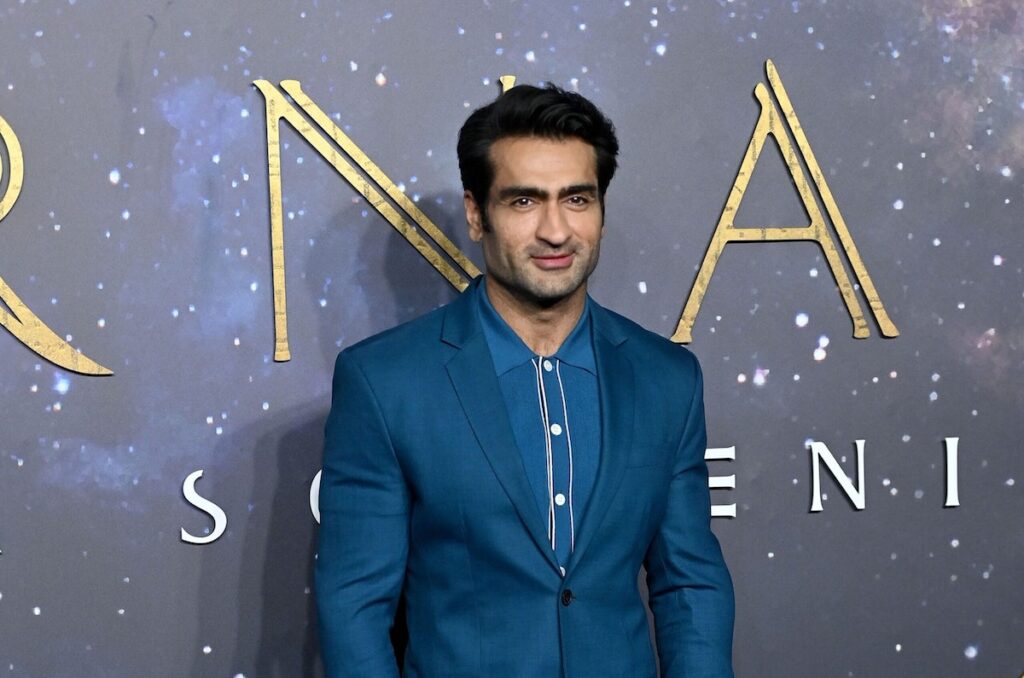In an unexpected revelation, Pakistan-born American actor Kumail Nanjiani candidly shared how the critical fallout from the Marvel film “Eternals” left deep scars on his mental health. The heated backlash from unimpressed film critics escalated from a mere professional hiccup to a personal crisis, forcing the actor to seek therapy. “The reviews were bad, and I was too aware of it,” Nanjiani stated during a recent “Inside of You with Michael Rosenbaum” podcast, shedding light on a seldom discussed aspect of the glitzy, yet unforgiving Hollywood scene.
“The Eternals”, a star-studded Marvel cinematic venture, had its fate sealed not by an arch-villainous entity, but by a slew of scathing reviews released upon the lifting of an embargo. Marvel Studios, expecting a wave of accolades, put the film in coveted movie festivals and embarked on a global promotional tour, to which the universe responded with an ironically unanimous thumbs-down. Nanjiani, who shouldered a significant portion of the promotional efforts, found himself to be the unwitting spokesperson of a much-panned film, an episode that began to toll on his mental well-being.
Nanjiani’s insider account provides insight into the paradox of the movie’s reception, posing the question- was there a dark energy brewing in the atmospherics of the film’s release? Digressions aside, the unequivocal actor emphasizes on the disconnect between the film’s quality and the critical reception it received, a contention that deserves some reflection. The consequent internal turmoil led Nanjiani to seek professional help. His wife Emily echoed similar sentiments, supporting his call to redefine his approach towards his work.
Hollywood films, especially those from the superhero genre, are caught in the perpetual seesaw of success and failure. “Eternals” was no different. Despite a powerhouse ensemble cast boasting of actors like Angelina Jolie, Salma Hayek, Kit Harington and others, along with the acclaimed director Chloé Zhao steering the creative wheel, the film struggled to match expectations. Grief was formidably distributed between the cast, crew, and anticipatory audience- an avatar of disappointment they hadn’t donned before. The film plunged not into heaps of appreciations but criticism, managing a feeble 47% critic score on Rotten Tomatoes, although not failing to attract an optimistic 77% audience rating.
The “Eternals,” dwelling in the pages of Marvel Comics and brought to life on the silver screen, stumbled on an unexpected stone in their path to universal acceptance. With global earnings of $402 million, coupled with some awards and nominations, it may not be accurate to label the film as a fiasco. Yet, sour reviews and mounting criticism illuminated a glaring contrast between audience response and critic sentiment.
To conclude, while Nanjiani’s candid revelation grabs attention, it also serves as a poignant reminder of the human element behind the facade of popularity and stardom in Hollywood. The actor’s ups and downs, his gritty determination, and reflective introspection provide a lesson in resilience. Confronting negative external perceptions, seeking help when needed and turning setbacks into opportunities for self-improvement — these are the hallmarks of a true contender, beyond the glamor and glitz. As the film fraternity and fans digest the bitter pill of “Eternals” with a dash of empathy, one wonders how much weight a review holds in the cinematic universe. Reality check – it’s heavy indeed, heavy enough to tip the scales of an actor’s mental equilibrium.



